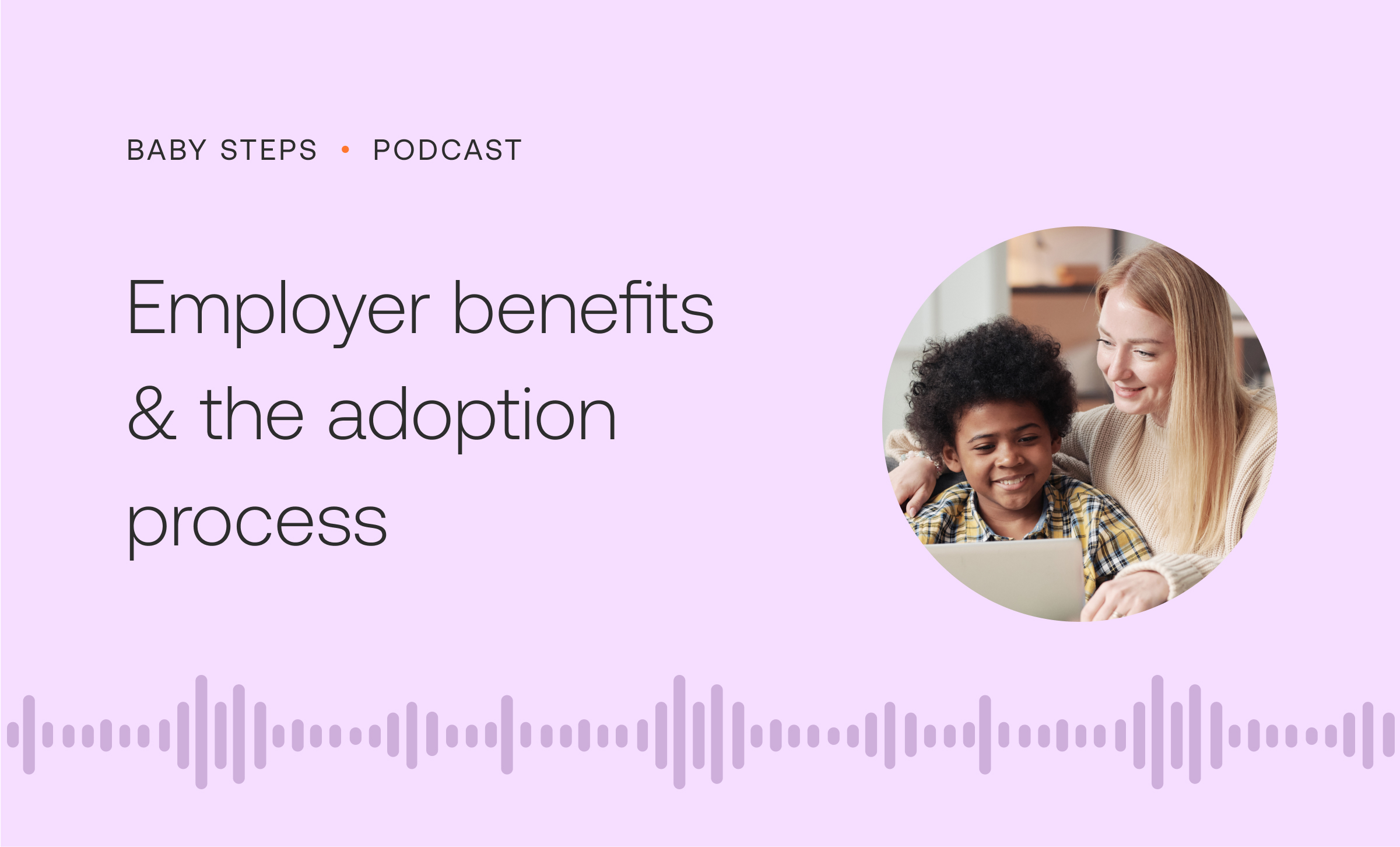In the U.S., prospective adoptive parents can take several paths to grow their families, including through foster care. Adopting through foster care in the U.S. is a complex process in which local and state governments work to place children in safe and loving homes. Often, children adopted through foster care are older children and teens, a part of a sibling group, or have special needs. Prospective adoptive parents who adopt through foster care receive financial support from federal and state funds, so these journeys cost considerably less than private and international adoptions. But like other adoption journeys, flexible scheduling, paid leave, and emotional support are essential to help them manage the lengthy process.
What is foster care?
Foster care is a temporary out-of-home arrangement provided through the public welfare system when a child is removed from the custody of their parent(s) or guardian(s) for a variety of reasons, often due to abuse, neglect, or abandonment. Sometimes placements are made with family members, also known as kinship care. Other times, the caregivers are licensed foster parents. These individuals go through hours of training and other preparations to care for children in need. At Carrot, we cover and support all forms of foster care and adoption.
While many children in the foster care system will return home to their legal parent or guardian, sometimes it’s not in their best interest, and adoption then becomes an option. There are two types of adoption from foster care:
Direct foster care adoption
There are 100,000 children in foster care whose parents’ rights have already been terminated. Their caseworkers are seeking permanent adoptive families for them. The average age of children waiting to be adopted is about seven years old, but approximately 40% are under six, and many of these younger kids are part of a sibling group.
Fostering to adopt
In the U.S., there are more than 400,000 children in foster care who have been removed from their homes due to neglect, abuse, or abandonment. Family reunification is the goal; however, adoption becomes an option when this is not possible. Over 60,000 children are adopted from foster care each year.
How employers can support employees who are fostering to adopt
Adoption is a relatively unknown process to most people, and foster care specifically is even less understood. As an HR leader, an essential first step is to familiarize yourself with the journey so you can better understand what your employees are going through — and what support you will need to offer through your benefits package. Here are a few key things to remember about the foster-to-adopt process that can impact your employees at work.
- Employees need flexibility. Employers should be aware that the adoption process may require employees to miss anywhere from days to weeks of work. Foster parents are expected to keep up with home inspections, birth parents' visits, court dates, and travel. Offering support will help employees feel comfortable sharing their plans and help them be successful both personally and professionally. Adoption assistance benefits should also include care navigation to help foster parents navigate the complex journey.
- Adoptive parents should also have access to paid leave. Adoptive parents are much less likely to get paid leave because they don’t qualify for short-term disability, which is how most employees take paid parental leave. This coverage gap can be challenging. It’s critical for parents to have time for a smooth transition in which they can focus on the emotional and physical health of their family, just like other new parents. Adoptive parents can technically take unpaid leave through FMLA, but you may want to consider joining the 27% of employers who offer paid adoption leave to allow employees to take time off without dipping into their own vacation time.
- Emotional support is essential. Becoming a foster parent and adopting through foster care is a personal decision. For some, adoption may stem from a loss or unsuccessful fertility treatments. Others may have always wanted to adopt. Foster parents often support children who have experienced extreme trauma, and they will also need support to manage their and their family’s emotions during the adoption process. Carrot provides emotional support for members through chats with emotional support experts.
- LGBTQ+ foster parents may need additional resources. Supporting foster parents will help contribute to your inclusion goals, as it creates a more inclusive environment for all paths to parenthood. Same-sex couples are four times more likely to adopt a child and six times more likely to foster a child when compared to different-sex couples, so adoption assistance benefits, in particular, help members of the LGBTQ+ community grow their families.
Seventeen states currently have no explicit protections against discrimination toward LGBTQ+ foster parents, so support is also vital for helping employees navigate systems across different states. Carrot provides access to legal support and vets all agencies for LGBTQ+ inclusivity to make sure someone’s sexual orientation or gender identity will not prevent them from growing their family.
Adopting from foster care is rewarding, but the process can also be incredibly stressful and misunderstood. While the number of children adopted through foster care has recently dropped across the majority of states, there are still many people who choose this path — and many children who still need loving homes. As an HR leader, understanding the nuances of the foster care system and adoption can help you provide the support your employees need to start their families.
Want to learn how Carrot’s fertility benefits support all paths for adoption – including adoption through foster care? Get in touch with us.












.avif)
